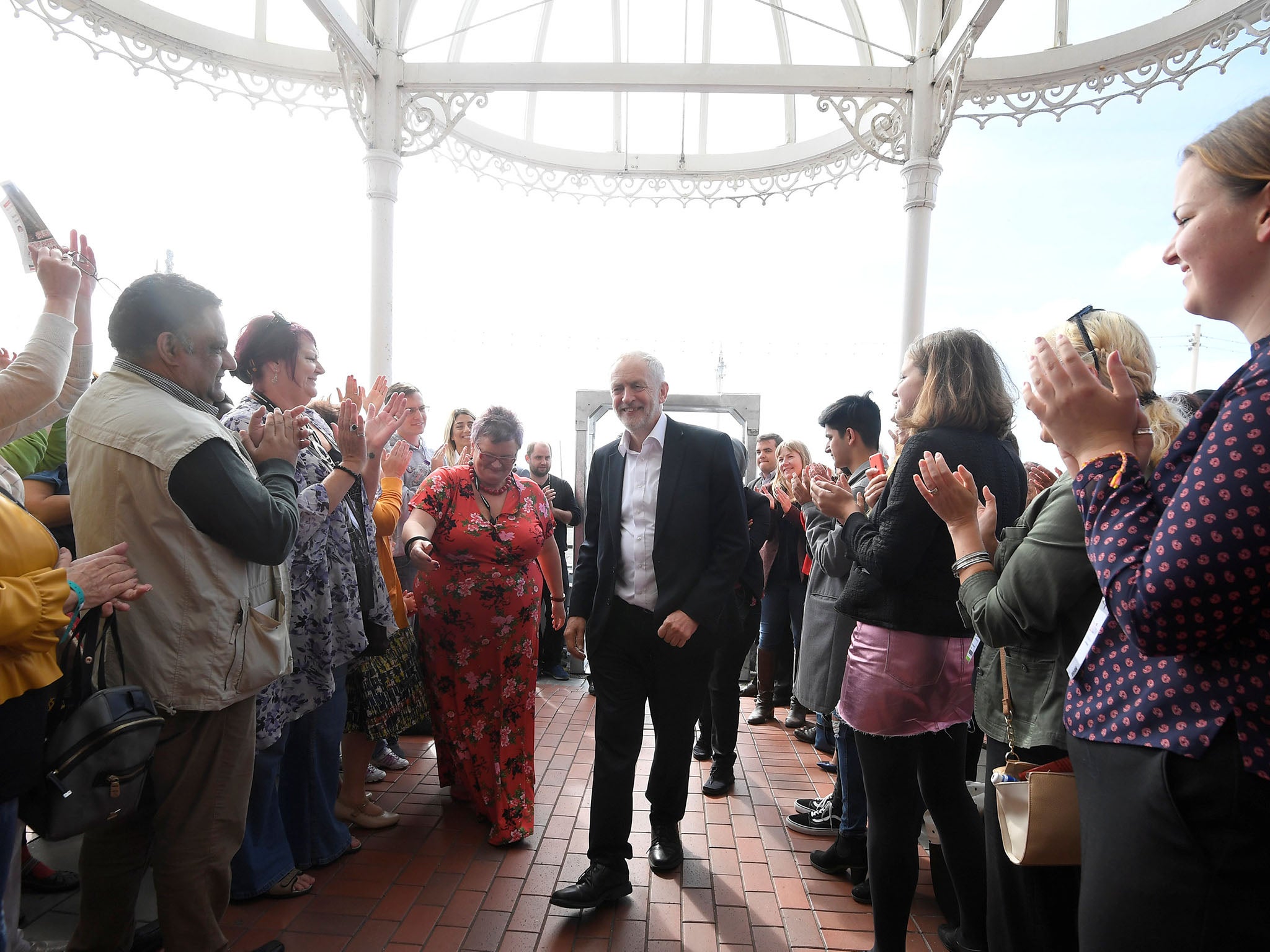Amidst the excitement of the conference, Labour supporters would do well to remember the huge challenges facing the party
Jeremy Corbyn should guard against complacency, and not forget that he needs to appeal to a wider group to win power

Jeremy Corbyn has earned the right to bask in the Brighton sunshine at Labour’s annual conference, after the party’s better than expected performance in the June election. Mr Corbyn has begun his third conference as leader in a remarkably strong position and in confident mood.
But the adulation of Labour delegates should not disguise the huge challenges facing the party. Although Labour deprived the Conservatives of their majority, it did not win. To become the largest party next time, Labour needs to gain another 29 seats, and to win a majority another 64. Mr Corbyn’s prediction of another election by Christmas now looks overexcited; the Tories, fearing a Labour victory, intend to hang on to power until 2022.
Whenever it comes, the next election will be very different to the last one – not least because Theresa May will not lead her party into it. The Tories are unlikely to run such a calamitous campaign again. So Labour should guard against complacency, and not forget that it needs to appeal to a wider group to win power – including its traditional working-class base and the “just about managing” courted by Ms May.
There are welcome signs that Mr Corbyn recognises this. Since June, he has already visited 50 of the marginal seats Labour needs to gain. Interviewed on the BBC’s Andrew Marr Show on Sunday, he tried to avoid handing hostile newspapers a headline about Labour backing illegal strikes. Mr Corbyn appears to be adopting a cautious approach to changes to the Labour rule book to entrench the left’s grip on the party, so that it does not slip back into the civil war which marked most of his first two years as leader.
But for all his talk about giving the party’s 570,000 members more influence, Corbyn supporters are apparently trying to prevent a full debate on Brexit at the Brighton conference, and the Labour leader is in danger of being out of step with the membership. A majority want to stay in the single market and customs union, and many people clearly voted Labour in June in the hope that the party would oppose Brexit. Against that, Mr Corbyn must balance the need to appeal to working-class Leave voters.
After many confusing and conflicting signals, Labour came out last month as the party of soft Brexit. Its policy of remaining in the single market and customs union during a transitional period from 2019 has now been copied by the Prime Minister in her speech in Florence – a sign that Labour is setting the agenda on Europe as well as on ending austerity and the public sector pay cap.
However, like the Tories, Labour needs to be clearer about Britain’s long-term destination. Mr Corbyn is resisting pressure from a cross-section of Labour MPs, including Chuka Umunna, peers and trade union leaders such as the TSSA’s Manuel Cortes, to pledge permanent membership of the single market and customs union. His fear that the internal market could prevent a Labour government pursuing policies on state aid, and renationalisation sounds like a throwback to the idea of “socialism in one country”, which would be impossible to achieve in today’s interconnected world.
Mr Corbyn’s approach to Brexit sometimes appears to be driven by opportunism rather than principle: a desire to let the Tories stew in their own juice and, of course, to force an election. It should be based on what is right for the country. That surely means keeping the UK as close as possible to its biggest market. It may require Labour to go back on its manifesto promise that free movement should end, and instead seek to reform it as part of the EU negotiations.
After Ms May’s visit to Florence, Mr Corbyn needs to guard against the impression that Labour’s Brexit policy is indistinguishable from the Tories’ and that both parties are merely postponing hard Brexit for a few years. That would not appeal to many of the new and young Labour recruits so enthused by Mr Corbyn.
Join our commenting forum
Join thought-provoking conversations, follow other Independent readers and see their replies
Comments
Bookmark popover
Removed from bookmarks